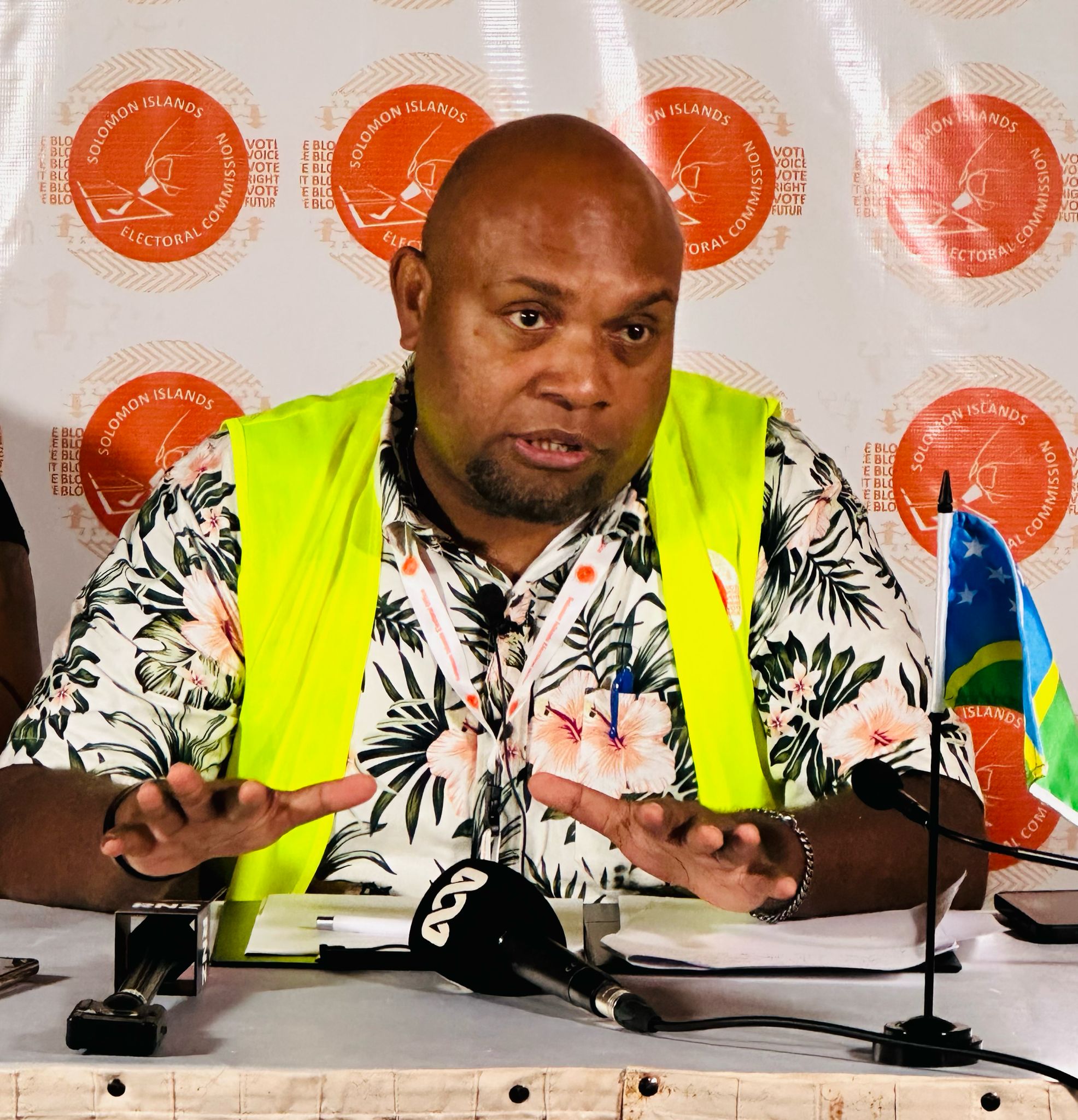
By EDNAL PALMER
THE Solomon Islands Electoral Commission (SIEC) is considering out-of-constituency voting, continuous voter registration, and building on the successes of the 2024 joint election in its preparations for future elections.
According to Chief Electoral Officer Jasper Highwood Anisi, those were the government’s three major policy directions that will shape the future of the electoral framework.
Speaking to open a stakeholders’ lesson-learned workshop on the 2024 joint election in Honiara today, Mr Anisi said those tasks are urgent, with just one year and ten months remaining for the election operation mode to be activated again in 2027 for the 2028 elections.
“As we move forward, it is imperative that we undertake a rigorous and comprehensive review of the 2024 electoral process. This is not merely a procedural exercise but a critical opportunity to reflect, learn, and innovate,” he said.
He added that such high-level engagement from various stakeholders is crucial and invaluable to inform planning, strengthen the election systems, and ensure the 2028 elections are more inclusive, efficient, and transparent.
From May 2024 to February this year, SIEC has conducted 20 lessons-learned sessions across the country, engaging election workers, provincial stakeholders, donors, political parties, and various other stakeholders.

The stakeholders present in today’s lesson learned included political parties, religious groups, women’s groups, media representatives, and others.
The meeting generated active and insightful discussions and recommendations on various electoral activities and phases.
One of the active participants, Lawrence Makili, said it is useful that such crucial recommendations be seriously considered by SIEC and that its technical support partners use the next phase to reform critical processes based on recommendations.
“The next elections will benefit greatly if these lessons are learned and internalized.”

